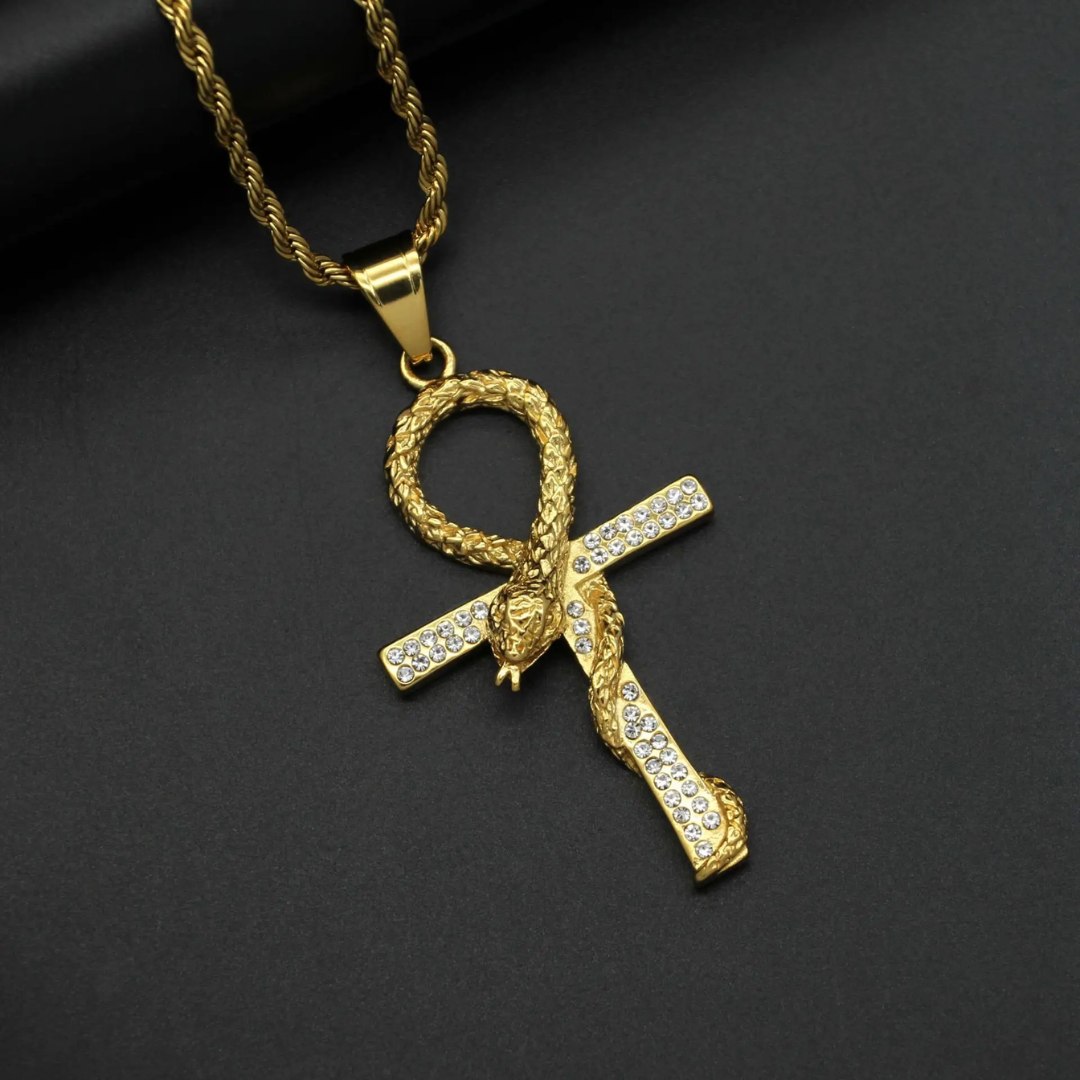Ancienne Égypte
Iced Ankh Necklace (Steel)
Iced Ankh Necklace (Steel)
Couldn't load pickup availability
An Egyptian necklace "iced ankh of luck" representing the serpent Apep (or Apophis in ancient Egyptian) forming the buckle of the famous Egyptian cross ankh.
- Stainless steel pendant: quality 316L steel, nobly patinates over time, water resistant
- Resistant pendant: meshed, reinforced and elegant structure
- Very agreeable to wear
- Chain length: 18" (46 cm) | Pendant size: 3.4x6.9 cm | Weight: ~25.7 gr
- FREE STANDARD SHIPPING
📏Refer to our MEASUREMENT GUIDE to see how the necklace will look according to its length.📏
If you are looking for a necklace, reminiscent of the land of the pharaohs, this ankh necklace "charm ankh" (steel) could be a great choice! If not, you can also visit our complete collection of ankh necklaces to see all the models with this cross-shaped emblem of ancient Egypt.
If you are not interested in this type of symbol, you can discover all our Egyptian necklaces. If you want even more choices, don't hesitate to have a look at the rings, bracelets and necklaces which compose our Egyptian jewelry.

An Egyptian ankh necklace
A pendant from ancient Egypt
Share






